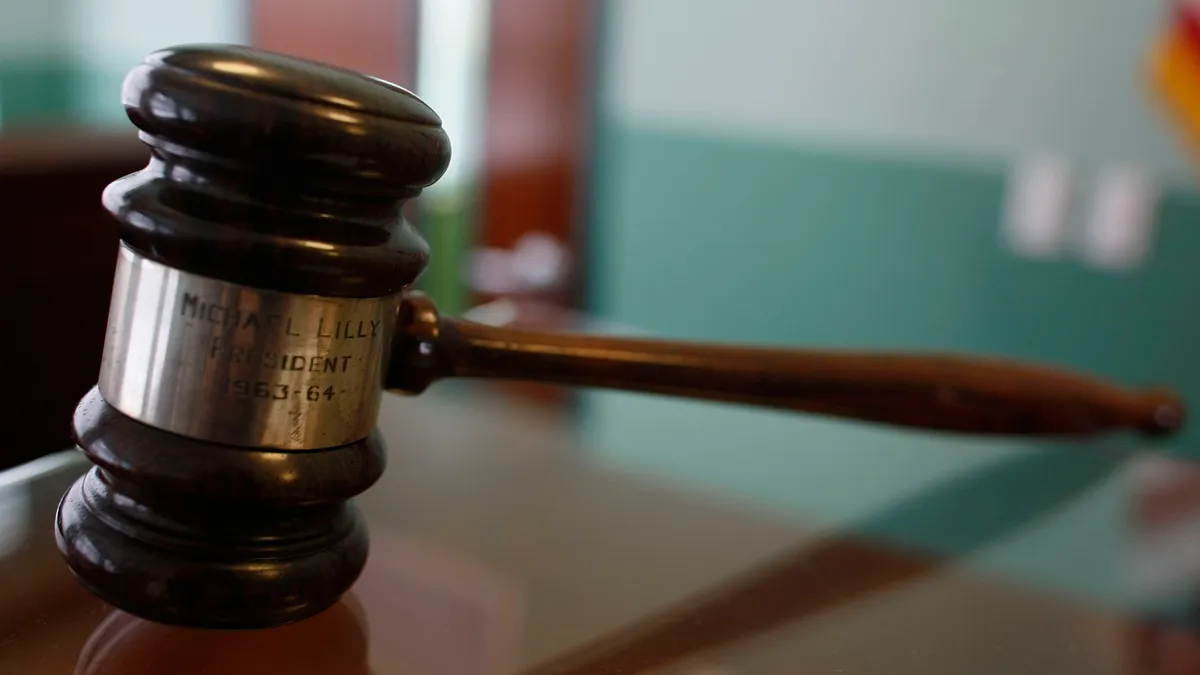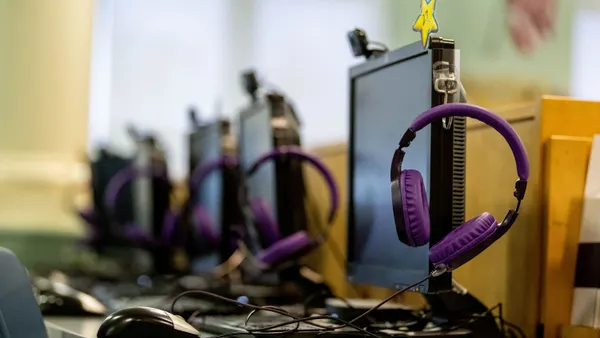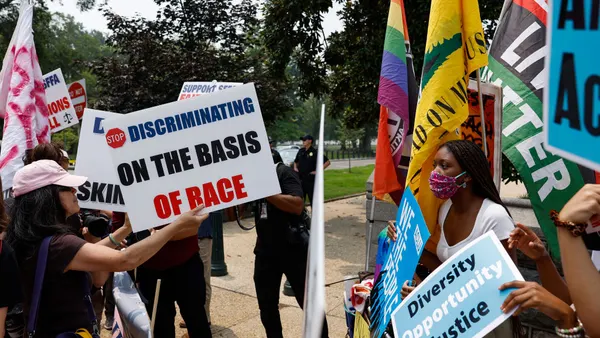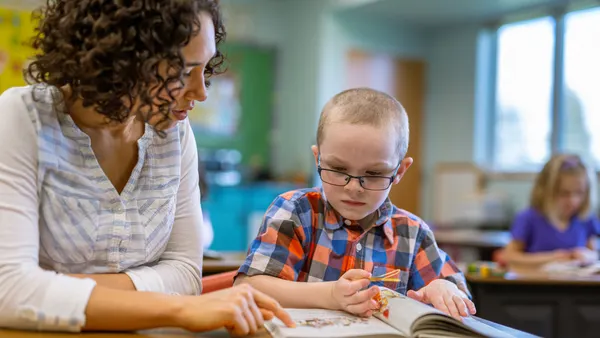Dive Brief:
- Improved coordination and more comprehensive efforts among schools, governments, community organizations and court systems are needed to keep youth out of the juvenile justice system and respond to those who do become involved, lawmakers and panelists said during a House subcommittee hearing Tuesday.
- While speakers noted improvements to the juvenile justice system in recent years with the reauthorization of the bipartisan Juvenile Justice and Delinquency Prevention Act in 2018, they said there are still too many incidents of abuse in detention facilities, recidivism and racial disparities.
- Connecting youth to extracurricular activities, arts programs, and career and technical education opportunities were a few of the proactive practices recommended by juvenile justice experts at the hearing.
Dive Insight:
Several lawmakers and witnesses at the hearing of the House Civil Rights and Human Services Subcommittee also suggested youth be incarcerated only when they are violent or dangerous.
"Preventing youth from ending up in detention is imperative," said Ranking Subcommittee Chair Russ Fulcher, a Republican from Idaho. "We know that incarcerating youth greatly decreases their chance for a successful future."
He added that when out-of-home placement becomes necessary, detention facilities must be made safe for youth and provide opportunities for them to succeed.
Hasan Davis, a former Kentucky commissioner of juvenile justice, said most incidents of abuse toward youth are at "tightly held" facilities, such as detention centers where "we have staff that are trained for command and control, not to manage young people in a way that really does address their needs and their moments of trauma." Davis is the founder and director of Hasan Davis Solutions, which provides coaching, technical assistance and support to organizations working to ensure educational equity and success.
A Government Accountability Office study released in January looked at how selected states prevent and address maltreatment of youth in federally funded residential facilities. GAO recommended that the U.S. Department of Health and Human Services, in consultation with the U.S. Department of Education, help states share information on promising practices for preventing and addressing such maltreatment.
Although the GAO report focused on residential facilities for youth in the foster care system and youth with disabilities, several speakers at Tuesday's hearing said the report's recommended practices could also improve residential facilities for youth in the juvenile justice system as an alternative to incarceration.
For example, the GAO report highlights the importance of residential facilities staff screening and training, as well as interagency coordination for reporting, problem solving and other activities.
In 2019, law enforcement agencies made an estimated 696,620 arrests of youth younger than 18. That's the fewest annual arrests of youth in nearly four decades, according to the U.S. Department of Justice.
The arrest rates for juveniles involved in violent crimes, such as murder and robbery, tend to be much higher for Black youth than for White youth, according to the Justice Department.
Panelist Lisette Burton, chief policy and practice advisor for the Association of Children's Residential Centers, said a healthy, holistic and high-quality continuum of care for children in the juvenile justice system depends on access to community-based professionals with the skills to help youth form positive relationships.
Burton added that a continuum of services should include approaches that prevent youth involvement in criminal court systems and provide effective interventions.
Involvement of the K-12 system is important for reforming juvenile justice approaches, lawmakers and panelists said. Alan Loux, panelist and president and CEO of Rawhide Youth Services in Wisconsin, said the faith-based, nonprofit organization offers counseling and residential services — as well as mental health therapy in 20 area schools.
"We've seen that with the mental health challenges," particularly during the pandemic, "we need to be there in the schools, and the education system is a critical component," Loux said.
Davis, Loux and Burton also spoke about the value of connecting youth in the juvenile justice system with arts, extracurricular activities, and career and technical education. Involvement in those activities can help build self-confidence, expose youth to pro-social engagements, and help them gain skills needed to get jobs, they said.
"Every day, thousands of our children take the last step away from a schoolhouse and too often their first step toward a jailhouse," said Davis, who called himself a "hope dealer." "We must focus on being youth centered, family focused, community based and trauma-responsive."













